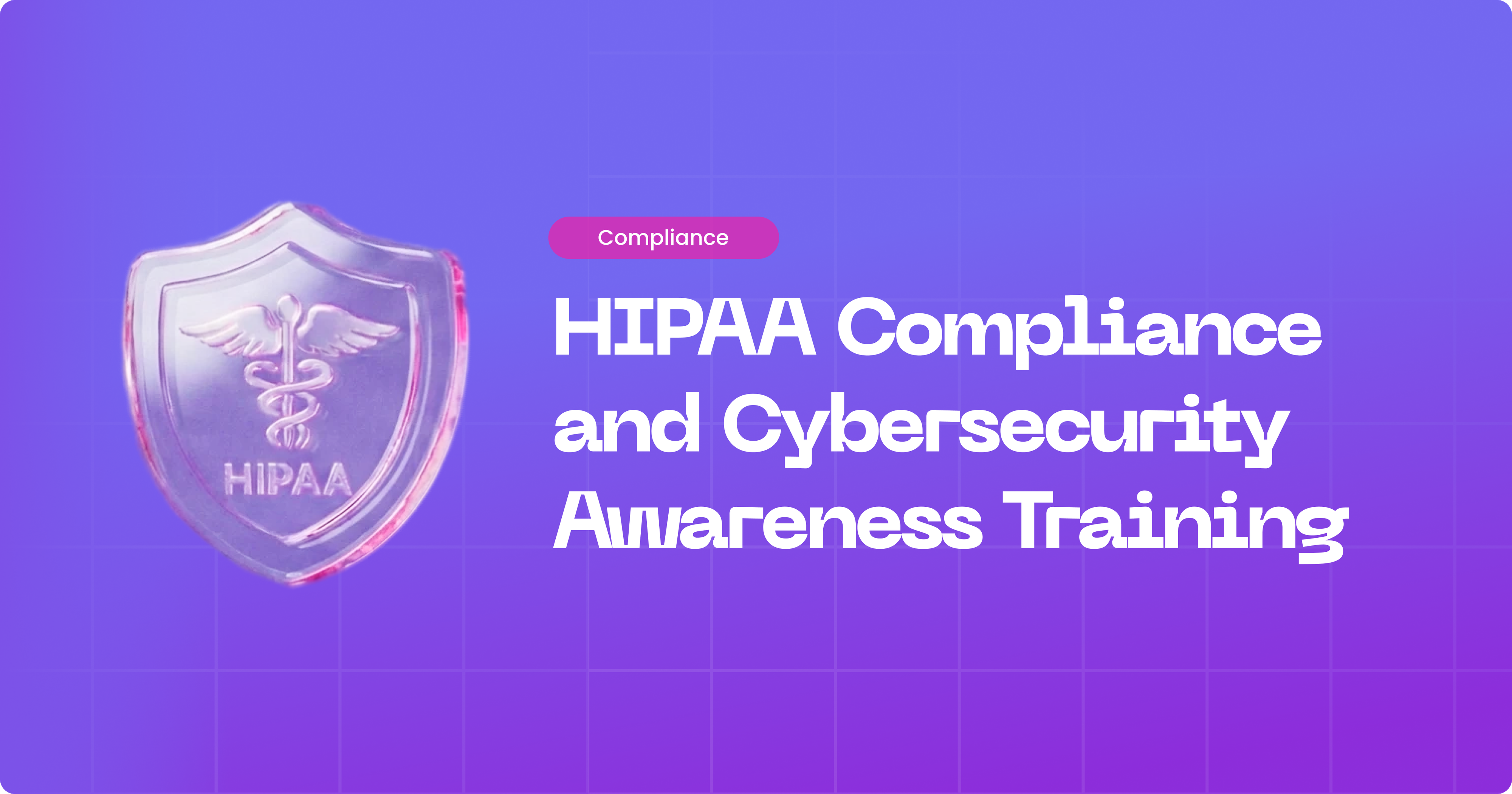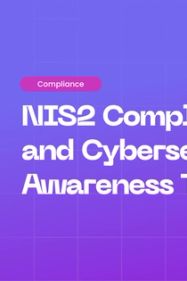
The Health Insurance Portability and Accountability Act (HIPAA) mandates the protection of Protected Health Information (PHI) across healthcare providers, insurers, and business associates. While encryption, secure EHRs, and access controls form the technical foundation, human error remains the leading cause of data breaches in the healthcare industry.
Cybersecurity Awareness Training (CSAT) is a core requirement under HIPAA’s Security Rule. It's also one of the most effective ways to reduce risk, demonstrate compliance, and prepare for audits or investigations. In this article, we explain how awareness training maps to HIPAA requirements and how simulation-based platforms can significantly strengthen your human defenses.
HIPAA Overview: Why Training Matters
HIPAA includes three main rules:
- Privacy Rule: Protects patient rights over health data use and disclosure.
- Security Rule: Sets standards for electronic PHI (ePHI) protection.
- Breach Notification Rule: Requires timely reporting of data breaches.
Under the Security Rule (45 CFR §164.308(a)(5)), covered entities and business associates must implement a security awareness and training program for all workforce members. It’s not optional — and not just for IT staff.
Common Human Threats in Healthcare Environments
Healthcare organizations are a top target for cyberattacks, not because their defenses are weak, but because their staff are overloaded, undertrained, and often unaware of the tactics used by modern attackers.
Examples of human risk include:
- Phishing emails spoofing EHR vendors, lab results, or internal memos
- Smishing attacks targeting scheduling or billing departments
- Vishing calls pretending to be regulators or insurance reps
- Improper disposal or sharing of patient records
- Lost or stolen credentials due to password reuse or social engineering
These incidents not only compromise PHI but also trigger HIPAA investigations and costly fines.
What HIPAA Requires From Awareness Training
According to the Security Rule:
- Training must be provided to all workforce members — not just those handling PHI directly.
- The program should be ongoing and updated to reflect new threats.
- Documentation of training activities is required for audits and enforcement actions.
HIPAA doesn’t prescribe specific formats, but regulators increasingly expect interactive, scenario-based training rather than static presentations.
Realistic Simulations for HIPAA-Relevant Threats
Our platform provides high-fidelity, AI-generated simulations that reflect real-world healthcare security challenges, including:
🧪 Phishing Simulation
Emails impersonating lab portals, IT helpdesk, or electronic prescribing tools. Tailored to clinical and administrative workflows.
📱 Smishing Simulation
Text messages mimicking appointment confirmations, internal broadcast alerts, or patient requests.
☎️ Vishing Simulation
Fake calls pretending to be OCR (Office for Civil Rights) or insurance providers seeking claim info or PHI.
🏥 Insider Threat Simulations
Educating staff on proper use, access, and disclosure of patient information.
Simulations can be adapted to roles like nurses, physicians, billing staff, IT support, and even third-party contractors.
How Our Platform Supports HIPAA Compliance
Our solution enables healthcare organizations and business associates to:
- Deliver department-specific training based on real scenarios
- Document all training records for compliance and audit readiness
- Measure employee risk levels and track improvements
- Automatically refresh training to keep pace with evolving threats
We also offer Breach Notification preparedness simulations to ensure staff know how to recognize and report incidents in a timely way.
Best Practices for HIPAA-Aligned Training Programs
To fully support HIPAA compliance, training programs should be:
1. Ongoing, Not One-and-Done
Schedule quarterly refreshers and reinforcement modules, especially for high-risk departments.
2. Tailored by Role
Customize training for frontline staff, admin, IT, and leadership. Each group interacts with PHI differently.
3. Evidence-Based
Maintain logs of who completed which training, when, and how. Include simulation outcomes and improvement over time.
4. Regulator-Ready
Prepare for OCR audits or breach inquiries with exportable, timestamped training reports.
HIPAA Violations: The Cost of Neglecting Training
A lack of adequate training has been cited in multiple enforcement actions, including:
- 📄 $2.75M fine against a university medical center — staff mishandled PHI, and training was outdated.
- 📄 $3M settlement with a healthcare network — phishing led to ePHI exposure; training was deemed “insufficient.”
- 📄 Corrective action plans (CAPs) requiring formal training program overhauls.
Beyond fines, breaches lead to reputational damage, patient churn, and operational disruption. Proactive CSAT is a cost-effective defense.
Why Healthcare Organizations Choose Our Platform
We work with hospitals, insurers, clinics, and healthcare SaaS providers to deliver:
- ✅ HIPAA-specific simulation libraries
- 📊 Compliance dashboards for DPOs and compliance officers
- 🗂️ Audit-ready reporting by user, department, or location
- 🌍 Multilingual support for global or community health systems
- 🔁 Automated, role-based training cycles
Our platform helps you demonstrate a good-faith effort in compliance and empowers your workforce to become an active line of defense.
Conclusion: People Are the Frontline of HIPAA Compliance
HIPAA violations often begin with a click, a call, or a careless action — all preventable with the right training. Cybersecurity Awareness Training is not just a regulatory checkbox; it's a frontline control against data breaches, fines, and reputational damage.
By investing in structured, simulation-based CSAT, your organization can meet HIPAA requirements with confidence and protect what matters most: patient trust.
Request a Demo
See how our AI-powered training platform helps your team meet HIPAA compliance, reduce PHI risk, and prepare for audits — all in one place.

